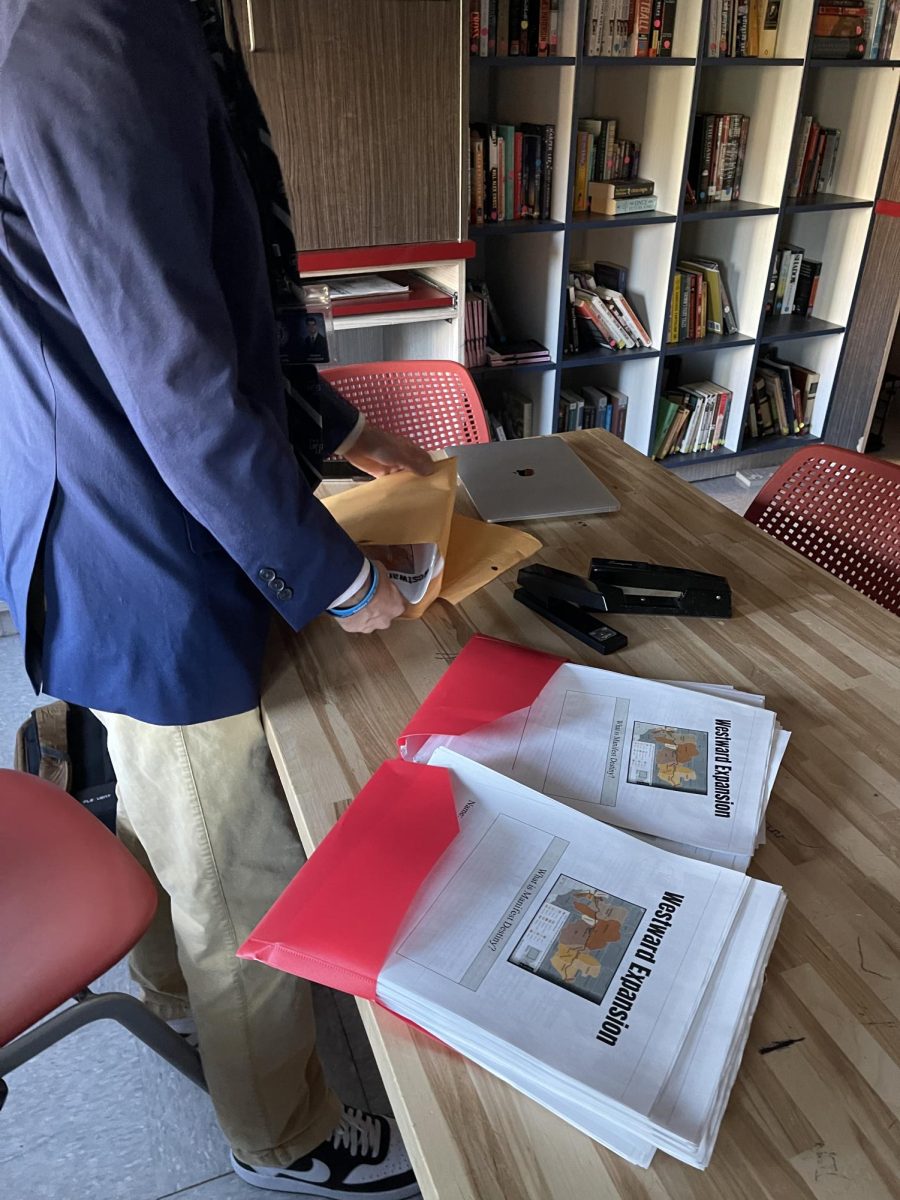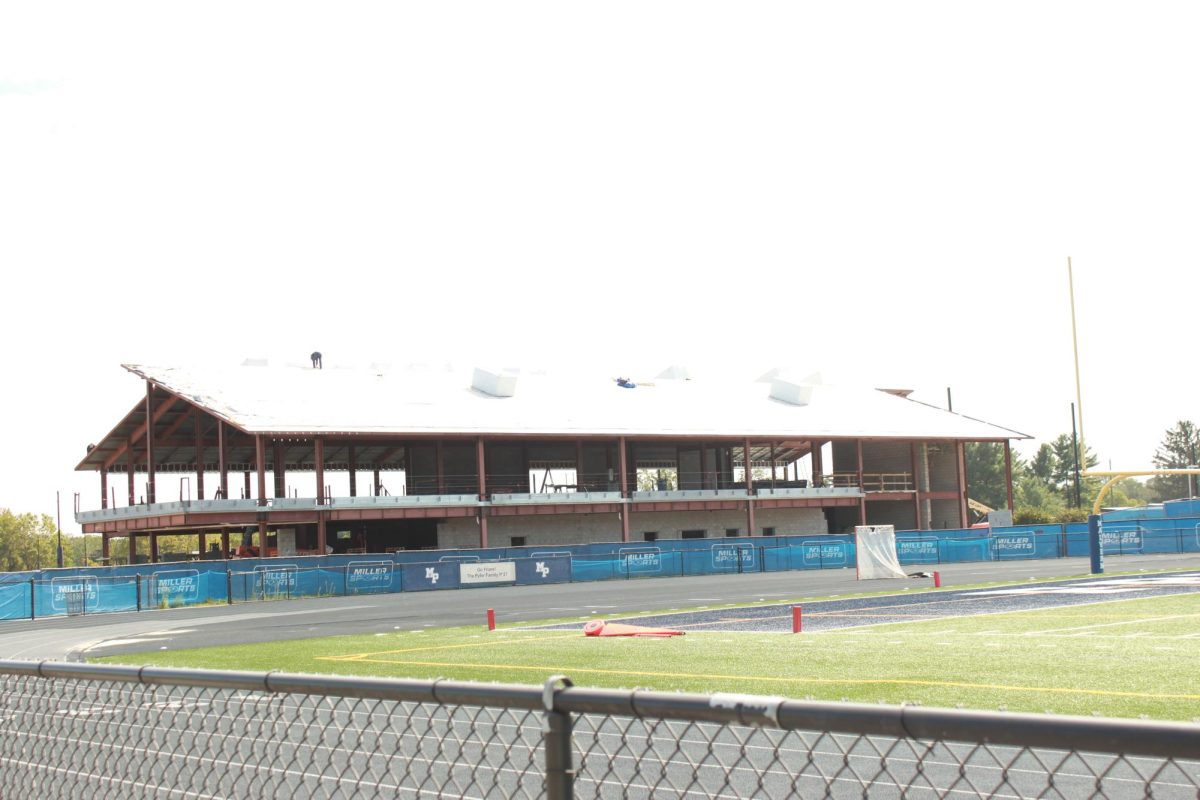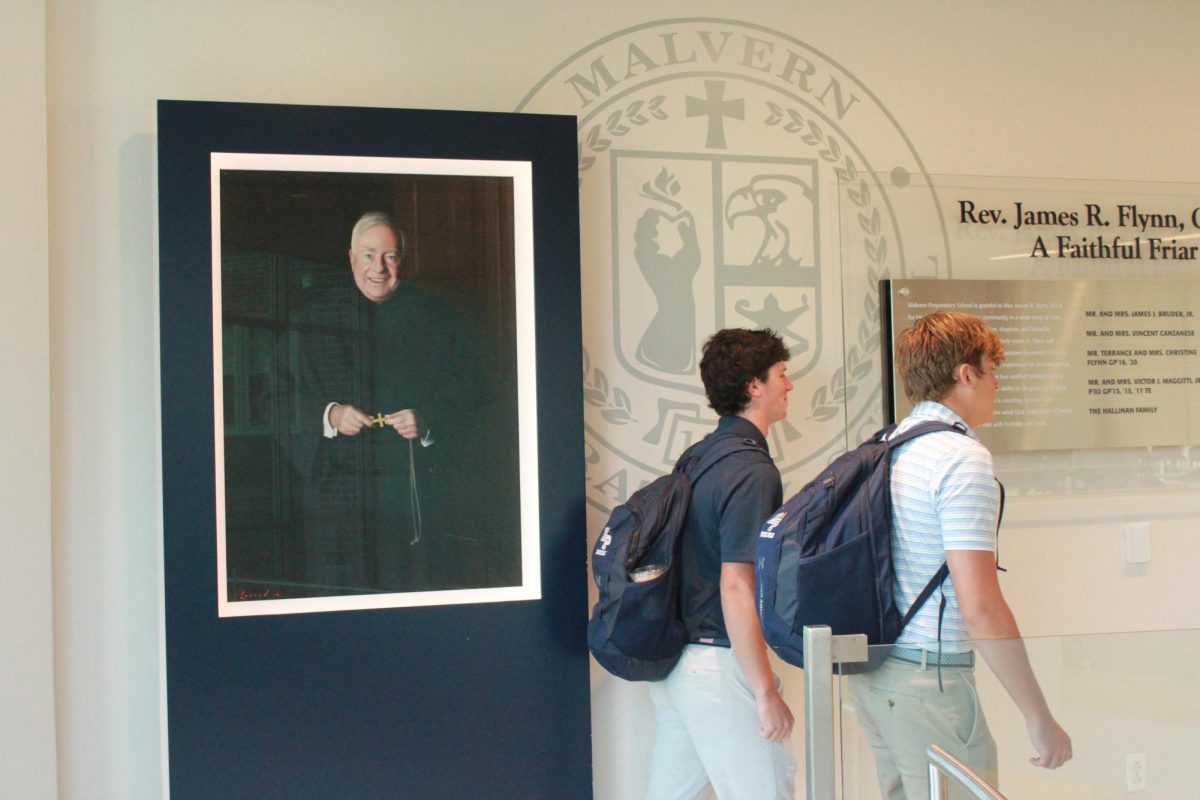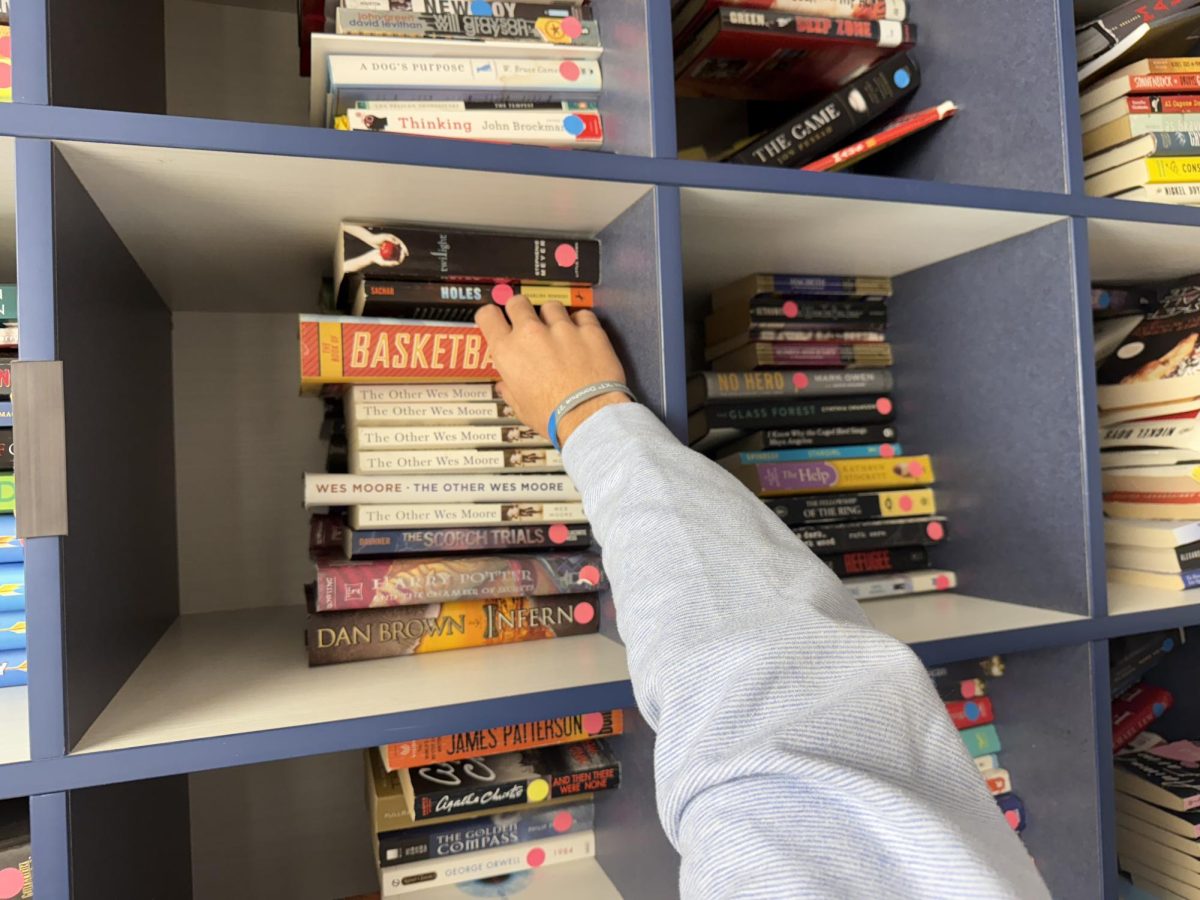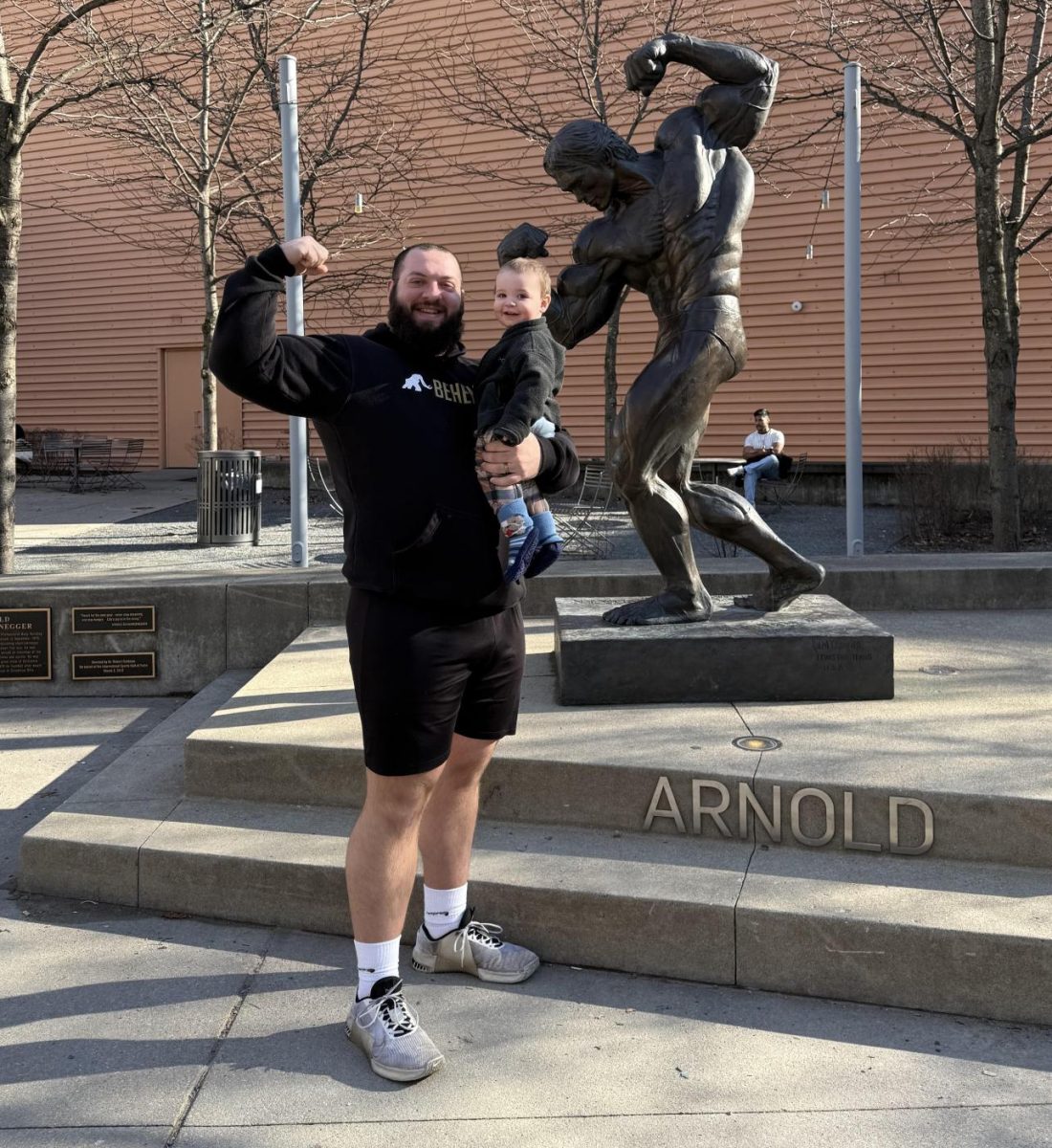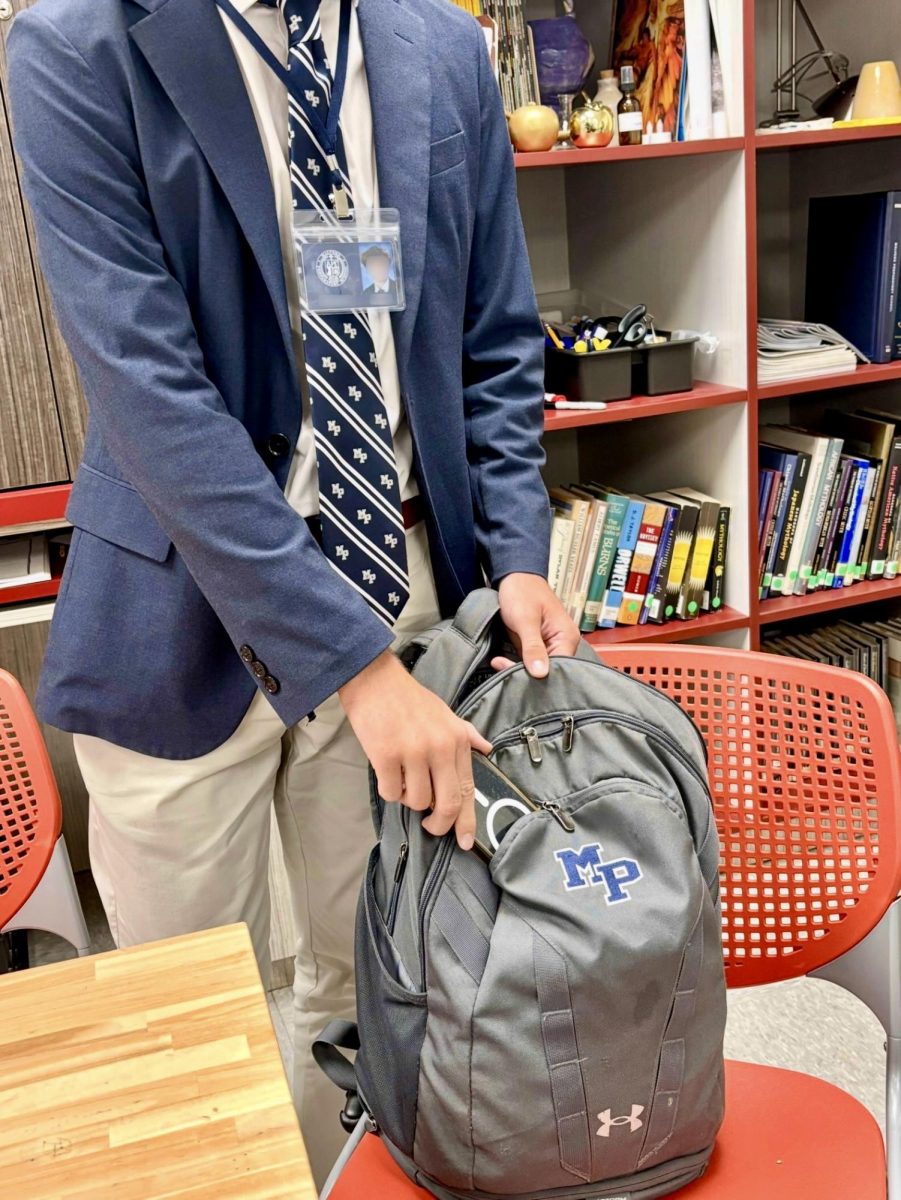Project Beisbol was founded around 15 years ago by Mr. Justin Halladay, a member of the Malvern Prep alumni class of 1995. It is an organization that aims to promote social change through baseball, particularly in Latin American countries like Colombia and Brazil, by introducing the sport to marginalized youth and tying it in with English language learning and leadership skills.
Ms. Teresa Lohse, Director of Global Programming and World Language Curriculum Coordinator, originally became connected with Justin Halliday Project Beisbol in 2018 and has been involved in the planning and organization of the subsequent trips.
“When Halliday was in college, he traveled a lot, and one of the places that really affected him was Cuba. He noticed the disparities among people and some people really didn’t have many resources. [His] idea was [to] bring equipment and teach the youth in that community, [giving] the youth an outlet. Ultimately, it would also be a way to promote social change because they will get a chance to learn English through this program,” Ms. Lohse said.
Malvern’s recent involvement began when students Mason Clark ‘24 and Leonardo Scarpato ’24 proposed an independent study project focusing on Project Beisbol’s work in Colombia, which eventually shifted to become a Christian service trip to Brazil. Ms. Metty Vithayathil, an Upper School English Teacher, accompanied the students on their trip to film in Brazil and later played a key role in organizing a week-long exchange program in Brazil, collaborating with the US State Department and local partners.
Ms. Vithayathil was approached by Clark, who wanted to do an independent study trying to bring together his interest in baseball and his passion for film. He wanted to bring those pieces together to have a larger impact on the community. Then he pulled in Scarpato and they proposed to film Halliday and the work he was doing.
“Mason approached me at the beginning of our junior year. He wanted to do a documentary on work Project Beisbol was doing in Colombia. I really liked the idea, so I teamed up with him and we worked with Ms. Vithayathil to draft a project proposal for Mr. Sillup.” Scarpato said.
Clark and Scarpato, along with the support of Ms. Vithayathil, created a proposal outlining the funding needed for the documentary, including expenses like travel, camera equipment, and lodging.
“We accounted for every single cost that we would need, and we wanted approval so that we’d be able to shoot it,” Scarpato said,
Scarpato was inspired to participate in the project because of his passion for filmmaking and the opportunity to use his skills for a meaningful cause. He admired Project Beisbol’s mission of empowering underserved youth through sports.
“I had been making movies since I was nine years old. For a while, it [had] been a hobby, but recently it’s grown into a passion. I’ve never really used it for something with as great of an impact as Project Beisbol I saw this as an opportunity to take my filmmaking to a new level by using it to help others,” Scarpato said.
Filming in Brazil presented challenges due to the lack of stabilization equipment and the intense heat. They filmed interviews, all with heavy 4K handheld cameras. Some days, they woke up at 8 o’clock in the morning and were out until 7 o’clock in the evening, meeting up with people and conducting interviews. They did this all while trying to play baseball and connect with kids in the community. Despite the challenges the project presented, requiring a different approach to filmmaking than they expected, Clark and Scarpato found the experience very enjoyable.
The documentary aimed to capture the impact of introducing baseball to children who had never experienced the sport before. Clark and Scarpato focused on documenting their reactions and the joy they experienced while playing.
“A lot of these kids had never seen a baseball before and had only heard of it. I was trying, especially when we first got on the field, to capture their faces. You can see their faces light up, [and] they have so much fun with the sport. Our main goal was to make sure the impact on them came across on screen,” Scarpato said.
Ms. Vithayathil discussed how they visited the State Department and they were interested in the work of Project Beisbol. The State Department was also interested in the idea of an exchange with students from the US, particularly Malvern students. What evolved was the trip taken this year, at the end of January 2024. It took about a year’s worth of planning with the State Department, local partners, and Project Beisbol to design a week-long experience for Malvern students.
“When Mason and I went, we had such an amazing time. It was such a surreal experience, that it almost felt like a disservice to not branch it out to other people, especially when we saw how other people could benefit from it. I’m not even a baseball player, and it was [so much] fun being on the baseball field with these kids. Getting the chance to bring other people was definitely [important],” Scarpato said.
The Brazil initiative grew out of an independent study project undertaken by Mason Clark and Leonardo Scarpato. Their documentary, titled “Ourfield,” won an award at the Keystone Media Awards, which recognize excellence in journalism that makes a positive impact in one’s community. The documentary premiered on February 9, 2024, at The Colonial Theatre in Phoenixville, PA, marking the culmination of a year-long project. The event provided an opportunity for the audience to learn about Project Beisbol and engage in discussion afterward.
“This was the first time an audience had seen the film. We invited friends, family, faculty, and anyone else who wanted to join and it turned out to be a great night for everyone to come together and talk about the film,” Scarpato said.
Clark and Scarpato hope the documentary highlights the challenges faced by underserved communities in accessing sports equipment and opportunities. They want viewers to understand the importance of addressing these issues and hope the documentary sparks awareness and action toward it.
“A lot of people tend to assume that South America is all baseball players because people from Venezuela come up and play in the MLB all the time. Really, it’s an equipment issue; it’s a poverty issue,” Scarpato said.
This past January, a group of Malvern Juniors went to Brazil for Project Beisbol. The students who went on this trip were nominated by a teacher and filled out an application. The primary focus of their service work was interacting with children, playing sports, teaching, and helping improve the lives of the local community members.
One student who went on this trip, Peter Hicks ‘25, said, “I liked the group. Everyone was selected specifically for this trip and we had such a good group of guys who all wanted to do good for the communities we met.”
Peter’s days in Brazil typically began with breakfast, followed by engaging with local communities in various ways. Activities included playing baseball, interacting with children, teaching them the English language, and answering their questions about their lives. They also visited museums and participated in a dance lesson.
The trips to Brazil involved flying from Philadelphia to Rio de Janeiro and then to Recife, a city in Brazil, with a total travel time exceeding 20 hours. Activities included English and Portuguese language exchange sessions, baseball clinics with local students, and visits to community centers.
“We’ve been to several different places, all along the coast as well as [to] Rio. [The students met] middle school students in a mid-size city called Recife in Brazil. We did a lot of programming there with [the students] and some of their other community organizations,” Ms. Vithayathil said.
Hicks expresses gratitude for the opportunity to gain these experiences and emphasizes the importance of the trip in making a positive impact on the lives of others. The trip gave students the opportunity to meet people from different communities and with different backgrounds, but also to see common bonds. It gave them the opportunity to learn about themselves and others and to widen their perspectives.
“You know something different. You’ve met someone, you’ve met a community that has changed your perspective. It could be something really basic or it could be something very complex, but you don’t come back the same,” Ms. Lohse said.
A continuation of the Brazil trip may take place in the future, although the exact timing and format are yet to be determined. There is interest in continuing the partnership with Project Beisbol in the future, given the unique opportunities it offers for cultural exchange and community engagement. The trip has garnered positive feedback, meaning it could possibly become a regular part of Malvern Prep’s extracurricular opportunities.



